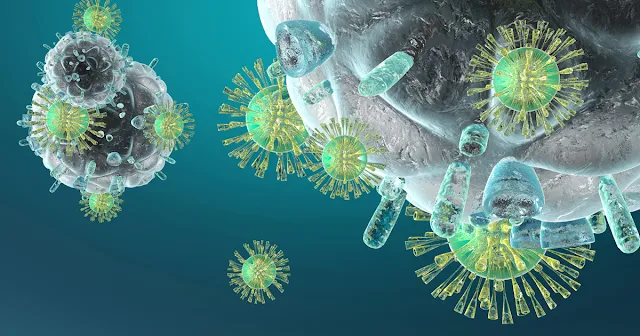A new type of drug that launches the body’s own immune system to fight tumors not only helps defeat melanoma, but lung cancer, too, researchers say.
The drug, called Keytruda, is new to the market. Two studies released over the weekend show it can work better than an older drug against melanoma and also shows it can stall lung cancer in certain patients.
“For many patients, this is going to be a very substantial change from the way we’ve treated cancer in the past,” Dr. Edward Garon of UCLA, who worked on the study, told NBC News.
The drug works on the principle that it’s not where cancer starts that matters, but the genetic mutation that causes the cancer. So a lung tumor in one patient may look like the melanoma in another.
Garon’s team tested Keytruda in 495 lung cancer patients. The drug targets mutations in genes called PD-1 and PD-L1. These mutations let some tumors escape detection and destruction by immune system cells that normally prevent cancer from spreading in the body.
“FOR MANY PATIENTS, THIS IS GOING TO BE A VERY SUBSTANTIAL CHANGE FROM THE WAY WE’VE TREATED CANCER IN THE PAST.”
It worked in about 19 percent of the patients, Garon’s team told a meeting of the American Association for Cancer Research in Philadelphia.
It was not a cure, but it offers hope to people with the world’s biggest cancer killer. Lung cancer is the leading cause of cancer death in the United States. It will be diagnosed in more than 224,000 people this year and it’ll kill nearly 160,000.
Most of the patients helped by Keytruda saw their cancer stop growing for about an average of a year, and some still haven’t had the cancer come back, Garon’s team said in their report, which was also published in the New England Journal of Medicine.
About a quarter of the lung cancer patients in the trial had a mutation in PD-L1, and the people helped most by the drug were more likely to have the mutation, the researchers found.
The drug, known generically as pembrolizumab, caused many side-effects, such as fatigue and rash. But so does chemotherapy for lung cancer.
In a second study, researchers compared Keytruda to another immunotherapy drug called Yervoy in 830 patients with melanoma.
After a year, 74 percent of patients who received Keytruda every two weeks were alive. This dropped to 68 of those dosed every three weeks. To compare, 58 percent of patients who got Yervoy lived a year or longer, researchers reported.
The drug, called Keytruda, is new to the market. Two studies released over the weekend show it can work better than an older drug against melanoma and also shows it can stall lung cancer in certain patients.
“For many patients, this is going to be a very substantial change from the way we’ve treated cancer in the past,” Dr. Edward Garon of UCLA, who worked on the study, told NBC News.
The drug works on the principle that it’s not where cancer starts that matters, but the genetic mutation that causes the cancer. So a lung tumor in one patient may look like the melanoma in another.
Garon’s team tested Keytruda in 495 lung cancer patients. The drug targets mutations in genes called PD-1 and PD-L1. These mutations let some tumors escape detection and destruction by immune system cells that normally prevent cancer from spreading in the body.
“FOR MANY PATIENTS, THIS IS GOING TO BE A VERY SUBSTANTIAL CHANGE FROM THE WAY WE’VE TREATED CANCER IN THE PAST.”
It worked in about 19 percent of the patients, Garon’s team told a meeting of the American Association for Cancer Research in Philadelphia.
It was not a cure, but it offers hope to people with the world’s biggest cancer killer. Lung cancer is the leading cause of cancer death in the United States. It will be diagnosed in more than 224,000 people this year and it’ll kill nearly 160,000.
Most of the patients helped by Keytruda saw their cancer stop growing for about an average of a year, and some still haven’t had the cancer come back, Garon’s team said in their report, which was also published in the New England Journal of Medicine.
About a quarter of the lung cancer patients in the trial had a mutation in PD-L1, and the people helped most by the drug were more likely to have the mutation, the researchers found.
The drug, known generically as pembrolizumab, caused many side-effects, such as fatigue and rash. But so does chemotherapy for lung cancer.
In a second study, researchers compared Keytruda to another immunotherapy drug called Yervoy in 830 patients with melanoma.
After a year, 74 percent of patients who received Keytruda every two weeks were alive. This dropped to 68 of those dosed every three weeks. To compare, 58 percent of patients who got Yervoy lived a year or longer, researchers reported.
